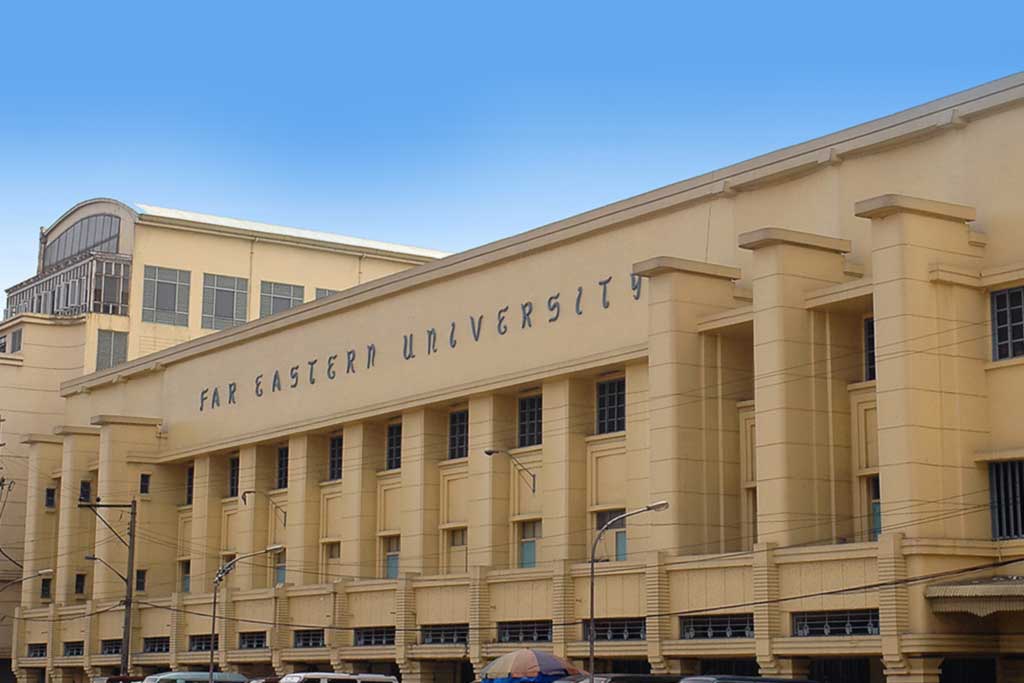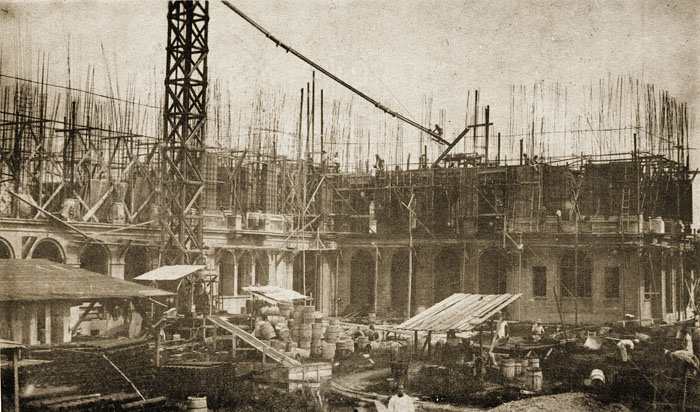|
Buenaventura S. Medina Jr.
Buenaventura S. Medina Jr. (born December 1, 1928) is a Filipino author of more than twenty-five books, mostly novels and books on criticism. In 1974, Medina rediscovered a manuscript of Francisco Balagtas' 19th century play '' Orosman at Zafira'' at the Philippine National Library after it was presumed lost for over a century. Aside from his published works, which include: ''Pintig'' (1969), ''Gantimpala'' (1972), ''Confrontations, Past and Present in Philippine Literature'' (1974), ''The Primal Passion, Tagalog Literature in the Nineteenth'' (1976), ''Francisco Baltazar's Orosman at Zafira'' (1991) and ''Moog and Alaga'' (1993), Medina has been awarded for his essays and short stories. He has also worked as an editor of magazines such as the Free Press. Although he obtained his BA and MA in English ( Far Eastern University) as well as his Ph.D. in South East Asian Studies ( Centro Escolar University) from Philippines Universities, his work has not been limited to the Philippi ... [...More Info...] [...Related Items...] OR: [Wikipedia] [Google] [Baidu] |
Filipino People
Filipinos ( tl, Mga Pilipino) are the people who are citizens of or native to the Philippines. The majority of Filipinos today come from various Austronesian ethnolinguistic groups, all typically speaking either Filipino, English and/or other Philippine languages. Currently, there are more than 185 ethnolinguistic groups in the Philippines; each with its own language, identity, culture and history. Names The name ''Filipino'', as a demonym, was derived from the term ''Las Islas Filipinas'' ("the Philippine Islands"), the name given to the archipelago in 1543 by the Spanish explorer and Dominican priest Ruy López de Villalobos, in honor of Philip II of Spain (Spanish: ''Felipe II''). During the Spanish colonial period, natives of the Philippine islands were usually known by the generic terms ''indio'' ("Indian") or ''indigenta'' ("indigents"). However, during the early Spanish colonial period the term ''Filipinos'' or ''Philipinos'' was sometimes used by Spanish writers ... [...More Info...] [...Related Items...] OR: [Wikipedia] [Google] [Baidu] |
Francisco Balagtas
Francisco Balagtas y de la Cruz (April 2, 1788 – February 20, 1862), commonly known as Francisco Balagtas and also as Francisco Baltasar, was a Filipino Tagalog litterateur and poet during the Spanish colonial period of the Philippines. He is widely considered one of the greatest Filipino literary laureates for his impact on Filipino literature. The famous epic ''Florante at Laura'' is regarded as his defining work. Balagtas adopted the legal surname, Baltasar, as part of the edict issued by Governor-General Narciso Claveria y Zaldua in 1849, that mandated the native population to adopt Standard Spanish surnames. Which was commonly misspelled as Baltazar and sometimes misinterpreted as his pen name. The Philippines has released currency honoring Kiko Balagtas on the 10 centavo coin. Early life Francisco Balagtas was born in Barrio Panginay, Bigaa, Bulacan as the youngest of the four children of Juan Balagtas, a blacksmith, and Juana de la Cruz. He studied in a parochial s ... [...More Info...] [...Related Items...] OR: [Wikipedia] [Google] [Baidu] |
Philippine National Library
The National Library of the Philippines ( fil, Pambansang Aklatan ng Pilipinas or ''Aklatang Pambansa ng Pilipinas'', abbreviated NLP, es, Biblioteca Nacional de Filipinas) is the official national library of the Philippines. The complex is located in Ermita on a portion of Rizal Park facing T. M. Kalaw Avenue, neighboring culturally significant buildings such as the Museum of Philippine Political History and the National Historical Commission. Like its neighbors, it is under the jurisdiction of the National Commission for Culture and the Arts (NCCA). The library is notable for being the home of the original copies of the defining works of José Rizal: ''Noli Me Tangere'', '' El Filibusterismo'' and ''Mi último adiós''. History Origins (1887–1900) The National Library of the Philippines can trace its history to the establishment of the ''Museo-Biblioteca de Filipinas'' (Museum-Library of the Philippines), established by a royal order of the Spanish government on Augu ... [...More Info...] [...Related Items...] OR: [Wikipedia] [Google] [Baidu] |
Philippine Daily Inquirer
The ''Philippine Daily Inquirer'' (''PDI''), or simply the ''Inquirer'', is an English-language newspaper in the Philippines. Founded in 1985, it is often regarded as the Philippines' newspaper of record. The newspaper is the most awarded broadsheet in the Philippines and the multimedia group, called The Inquirer Group, reaches 54 million people across several platforms. History The ''Philippine Daily Inquirer'' was founded on December 9, 1985, by publisher Eugenia Apóstol, columnist Max Solivén, together with Betty Go-Belmonte during the last days of the regime of President Ferdinand Marcos, becoming one of the first private newspapers to be established under the Marcos regime. The ''Inquirer'' succeeded the weekly ''Philippine Inquirer'', created in 1985 by Apostol to cover the trial of 25 soldiers accused of complicity in the assassination of opposition leader Ninoy Aquino at Manila International Airport on August 21, 1983. Apostol also published the '' Mr. & Ms. Spec ... [...More Info...] [...Related Items...] OR: [Wikipedia] [Google] [Baidu] |
Far Eastern University
Far Eastern University (Filipino language, Filipino: ''Pamantasan ng Malayong Silanganan''), also referred to by its acronym FEU, is a Private university, private non-sectarian Liberal arts college, liberal arts university in Manila, Philippines. Created by the merger of Far Eastern College and the Institute of Accounts, Business, and Finance, FEU became a university in 1934 under the guidance of its first president, Nicanor Reyes Sr. The first accountancy school for Filipinos, the university, through the years, has expanded its course offerings to the arts and sciences, architecture, fine arts, education, engineering, computer studies, graduate studies, tourism and hotel management, law, nursing, and medicine. FEU has seven campuses located in Metro Manila, Cavite and Rizal. It offers programs from elementary, secondary, tertiary, to graduate school. FEU Manila comprises several Institutes that offer specific programs. The accountancy program, along with its other Undergrad ... [...More Info...] [...Related Items...] OR: [Wikipedia] [Google] [Baidu] |
Centro Escolar University
Centro Escolar University ( tl, Pamantasang Centro Escolar) also referred to by its acronym CEU is a private non-sectarian higher education institution in San Miguel Manila, Philippines Manila ( , ; fil, Maynila, ), officially the City of Manila ( fil, Lungsod ng Maynila, ), is the capital of the Philippines, and its second-most populous city. It is highly urbanized and, as of 2019, was the world's most densely populated .... It was founded in 1907 by Librada Avelino and Carmen de Luna as the Centro Escolar de Señoritas. CEU has six campuses: the main campus, Mendiola; the Malolos campus; the Centro Escolar Las Piñas, Las Piñas campus; the Cebu City campus; and the Centro Escolar University Makati, Makati campuses (Gil Puyat and Legaspi Village campuses). More than 50 academic programs are offered. CEU is accredited by the Philippine Accrediting Association of Schools, Colleges and Universities#History, Federation of Accrediting Agencies of the Philippines and the Ph ... [...More Info...] [...Related Items...] OR: [Wikipedia] [Google] [Baidu] |
Ateneo De Manila University
, mottoeng = Light in the Lord , type = Private, research, non-profit, coeducational basic and higher education institution , established = December 10, 1859 , religious_affiliation = Roman Catholic (Jesuits) , academic_affiliations = ACUCA AJCU-AP AUN PAASCU IAJU , endowment = , chairman = Bernadine T. Siy , head_label = President , head = Fr. Roberto C. Yap, SJ , faculty = approx. 2,470 , administrative_staff = 3,015 , students = 15,269 (university level) , undergrad = 8,614 , postgrad = 6,655 , doctoral = , other = approx. 6,500 (grade school and high school) , city = , location = Loyola Heights, Quezon City, Metro Manila, Philippines * Grade School * Junior High School * Senior High School * Loyola Schools * School of Government Salcedo Village, Makati, Metro Manila, Philippines Rockwell Center, Makati, Metro Manila, Philippines * School of Law * Graduate School of Business ... [...More Info...] [...Related Items...] OR: [Wikipedia] [Google] [Baidu] |
De La Salle University
De La Salle University ( fil, Pamantasang De La Salle or Unibersidad ng De La Salle), also referred to as DLSU, De La Salle or La Salle, is a private university, private, Catholic Church, Catholic coeducational research university run by the Institute of the Brothers of the Christian Schools in Taft Avenue, Malate, Manila, Philippines. It was established by the Christian Brothers in 1911 as the De La Salle College (DLSC) in Nozaleda Street, Paco, Manila with Blimond Pierre Eilenbecker, De La Salle Brothers, FSC serving as Director_(business), director, and is the first De La Salle school in the Philippines. The institution moved to its present location in 1921. The college was granted university status on February 19, 1975, and is the oldest constituent of De La Salle Philippines (DLSP), a network of 16 educational institutions, established in 2006 replacing the De La Salle University System. The institution started as an exclusive single-sex education, all-boys elementary and ... [...More Info...] [...Related Items...] OR: [Wikipedia] [Google] [Baidu] |
Filipino Novelists
Filipino may refer to: * Something from or related to the Philippines ** Filipino language, standardized variety of 'Tagalog', the national language and one of the official languages of the Philippines. ** Filipinos, people who are citizens of the Philippines or are of Filipino descent. Other uses * Filipinos (snack food), branded cookies manufactured in Europe See also * * * Filipinas (other) Filipinas may refer to: * ''Filipinas, letra para la marcha nacional'', the Spanish poem by José Palma that eventually became the Filipino national anthem. * The original Spanish name, and also used in different Philippines languages including F ... {{disambiguation Language and nationality disambiguation pages ... [...More Info...] [...Related Items...] OR: [Wikipedia] [Google] [Baidu] |
Centro Escolar University Alumni
Centro may refer to: Places Brazil *Centro, Santa Maria, a neighborhood in Santa Maria, Rio Grande do Sul, Brazil * Centro, Porto Alegre, a neighborhood of Porto Alegre, Rio Grande do Sul, Brazil *Centro (Duque de Caxias), a neighborhood of Duque de Caxias, Rio de Janeiro, Brazil *, a neighborhood of Niterói, Rio de Janeiro, Brazil *Centro, Rio de Janeiro, a neighborhood of Rio de Janeiro, Brazil *Centro (São Paulo), the historic downtown of São Paulo, Brazil *, Aracaju, Sergipe, Brazil Mexico *Centro, Guadalajara, Jalisco, Mexico *Centro, Puerto Vallarta, Jalisco, Mexico *Centro Municipality, Tabasco, Mexico *Centro (borough), Tijuana, Baja California, Mexico * Centro, Yucatán, Mexico *Centro, the historic center of Mexico City, Mexico Elsewhere *Centro Habana, Cuba *Centro, Mandaue, a barangay in the Philippines *Centro Region, Portugal *Centro, Moca, Puerto Rico, a subdivision (also called a ''barrio'') of Moca, Puerto Rico *Centro (Madrid), a district of the city of Mad ... [...More Info...] [...Related Items...] OR: [Wikipedia] [Google] [Baidu] |



.png)
